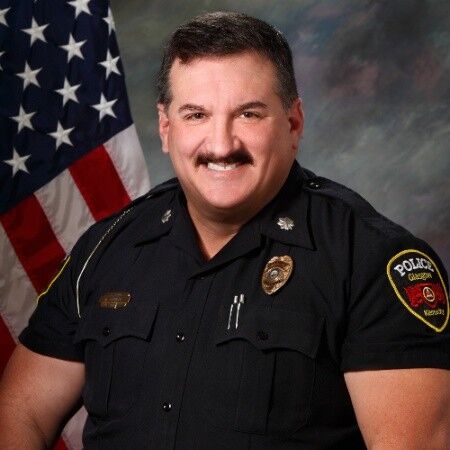Psychologist takes stand
Published 12:00 am Saturday, February 20, 2010
Prior to being charged in 2006 with murder and kidnapping, Lawrence Stinnett was treated for depression and substance abuse, according to a psychologist employed by the state Department of Corrections.
Dr. Greg Perri, a psychologist for the Kentucky Correctional Psychiatric Center, evaluated Stinnett twice prior to his trial, and appeared in Warren Circuit Court on Friday to testify for the defense.
Perri, whose two evaluations established that Stinnett, 50, was mentally competent to stand trial, testified Friday that Stinnett had a past psychiatric history that involved treatment in 1989 for depression and alcohol and drug abuse and in 1990 for depression at an Oklahoma facility.
Stinnett was subsequently treated for chemical dependency at another Oklahoma facility, Perri testified.
Stinnett is charged with the beating death of his girlfriend, Christina Renshaw, 29, at the apartment the two shared at 1712A Highland Way on Feb. 3, 2006.
A co-defendant, Alanda Lewis, 32, is facing the same charges and will be tried separately.
Stinnett is acting as lead counsel during his trial, with assistance from Vince Yustas of the Department of Public Advocacy and Jonathan Hieneman, a Campbellsville attorney contracted through the DPA for this case.
Whereas Stinnett has questioned and cross-examined nearly every witness, Yustas conducted the questioning of Perri on Friday.
Perri said that during his initial evaluation, Stinnett was on a prescription regimen of Prozac, an antidepressant, and was also taking Benadryl as a sleeping aid.
The psychologist testified that both of Stinnett’s parents had a history of problems with alcohol, two of his brothers suffered from depression and another brother had bipolar disorder.
“There tends to be a correlation amongst family members … where mental illness in the family can increase one’s susceptibility (to illness),” Perri said.
Stinnett underwent a battery of psychological tests while at KCPC, staying 30 to 60 days during each visit.
During one of his hospitalizations, Stinnett’s Prozac dosage was increased from 20 milligrams to 40 milligrams a day, Perri said, after Stinnett continued to report symptoms of depression and anxiety.
During the evaluations, Perri said he was informed of Stinnett’s prior encounters with Oklahoma police involving a former girlfriend, Jackie Thompson.
One particular incident involved Stinnett calling the police himself and reporting there were men hiding in Thompson’s house, though no men were there when police arrived.
Another reported incident involved Stinnett chasing Thompson with a baseball bat, according to testimony.
“It did sound as though alcohol and substance abuse played a role in a number of the incidents,” Perri said.
Even with a history of apparent mental illness, Stinnett was determined twice by Perri to be competent to stand trial. Perri testified that Stinnett did well on all administered tests, although Stinnett did exhibit obsessive-compulsive and narcissistic personality disorders while at KCPC.
Yustas questioned Perri on whether Stinnett may have been triggered by events leading up to Feb. 3, 2006, that led him to act under the influence of “extreme emotional disturbance” during the alleged murder, raising the possibility that Stinnett’s obsessive thought patterns and narcissistic personality disorder led him to suspect Renshaw of infidelity, leading to Stinnett driving from Oklahoma City to Bowling Green that day.
Under cross-examination from Warren County Commonwealth’s Attorney Chris Cohron, Perri said that whether Stinnett acted under the influence of extreme emotional disturbance should be a finding made by a jury.
Further questioning elicited testimony from Perri that it would be unlikely for a person acting under the influence of extreme emotional disturbance to make phone calls to his employer and attempt to pawn a keyboard and cash checks at a bank during an 11-hour trip, all actions that investigators have testified Stinnett did on Feb. 3, 2006.
Stinnett’s employer testifies
Christian Anderson, the owner of a photography business at which Stinnett worked in 2006, testified about his surprise at Stinnett’s unannounced trip from Oklahoma to Kentucky.
Anderson, who now owns an advertising company, had hired Stinnett for his photography business as a sales representative. The company would set up kiosks at retailers and in shopping malls across several states and Stinnett would be responsible for promoting the kiosk to passers-by.
During direct examination by Stinnett, Anderson said Stinnett was a good employee, but was the subject of one complaint from an Oklahoma retailer that claimed Stinnett smelled of alcohol while on the job.
“It didn’t appear the defendant was intoxicated, he simply smelt of alcohol,” Anderson said.
Anderson testified that on Feb. 3, 2006, Stinnett called him from an Arkansas bank, where Stinnett was attempting to cash a check from the company.
“I was surprised because he was supposed to be at work,” Anderson said.
When Anderson asked what Stinnett was doing, Stinnett told him that he was going to Kentucky to retrieve his belongings from Renshaw’s apartment, alleging that he overheard Renshaw have sex with multiple partners during a prior cell phone call, according to Anderson’s testimony.
“He told me he was driving up there to retrieve all his stuff and that he was either coming back to Oklahoma or he is going to be in jail,” Anderson said.
Police, private investigators take the stand
Detective Brett Kreilein of the Bowling Green Police Department, the lead investigator in the case, took the stand for the sixth time during the trial, showing jurors the contents collected from a clothes dryer at the scene.
Opening a brown paper evidence bag, Kreilein showed jurors five pairs of underwear, a pair of socks and a towel.
Stinnett asked whether the items were sent for testing at the Kentucky State Police Crime Lab.
Stinnett’s original defense team had been able to walk through the apartment with police and request that items be collected for evidence and sent for testing.
Kreilein testified that he never saw a request to test the items for bodily fluids, only to have them collected into evidence.
William Evola, an investigator for the Department of Public Advocacy, testified to being present for the walkthrough at Renshaw’s apartment with public defender Betty Niemi, who formerly represented Stinnett.
Evola said he took some pictures of the apartment and there was a list of items requested to be collected for testing, including cigarette butts, women’s underwear and bed sheets.
During cross-examination from Cohron, Evola said the DPA has the ability to have items collected from crime scenes tested independently.
Ronald Lox, president of Inquisitors Inc., a Memphis-based private investigative firm specializing in capital murder investigations and court-ordered to work on the Stinnett case, testified about the role his firm played in this case.
Lox said his firm’s work involved interviewing witnesses and people who know the suspect, looking over evidence collected by police and considering what discovery evidence may be missing.
The firm employs mitigation specialists to interview those people who are familiar with the accused in capital murder cases.
“They put together a compilation of the life history of the individual,” Lox said. “It’s not an endeavor to excuse what someone does, but more an effort to better understand why something happened.”
Lox recalled conferring with Stinnett several times over the case.
“The defendant brought up on several occasions about two missing cell phones that we had no documentation for,” Lox said.
Police recovered four cell phones from the crime scene, one belonging to Stinnett and another to Renshaw. The other two phones were inactive, according to prior testimony, and no information could be obtained from them by analysts at the Regional Organized Crime Information Center, according to prior testimony.
Lox testified under questioning by Cohron that he was not aware of the tests conducted by ROCIC. Cohron also mentioned that a search for voice mails, text messages and other electronic data would more likely involve issuing a subpoena to a service provider rather than physically examining the phone itself.
Nakesha Jenkins, who was Alanda Lewis’ cellmate for two weeks, testified overhearing Lewis talk about the case one night.
“Her and three of her other friends were playing cards, I was lying in my bunk trying to sleep,” Jenkins said. “She said they went up there and beat her with objects and towels or whatever and dropped a television on her head.”
Additional defense witnesses are anticipated to testify at the trial, which resumes Wednesday.






